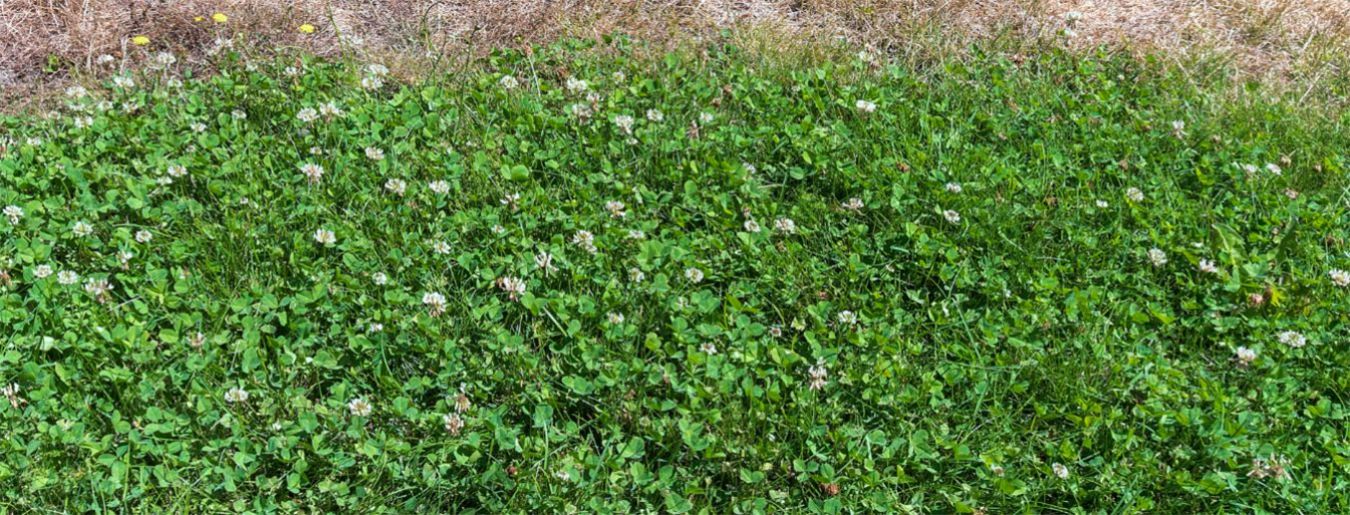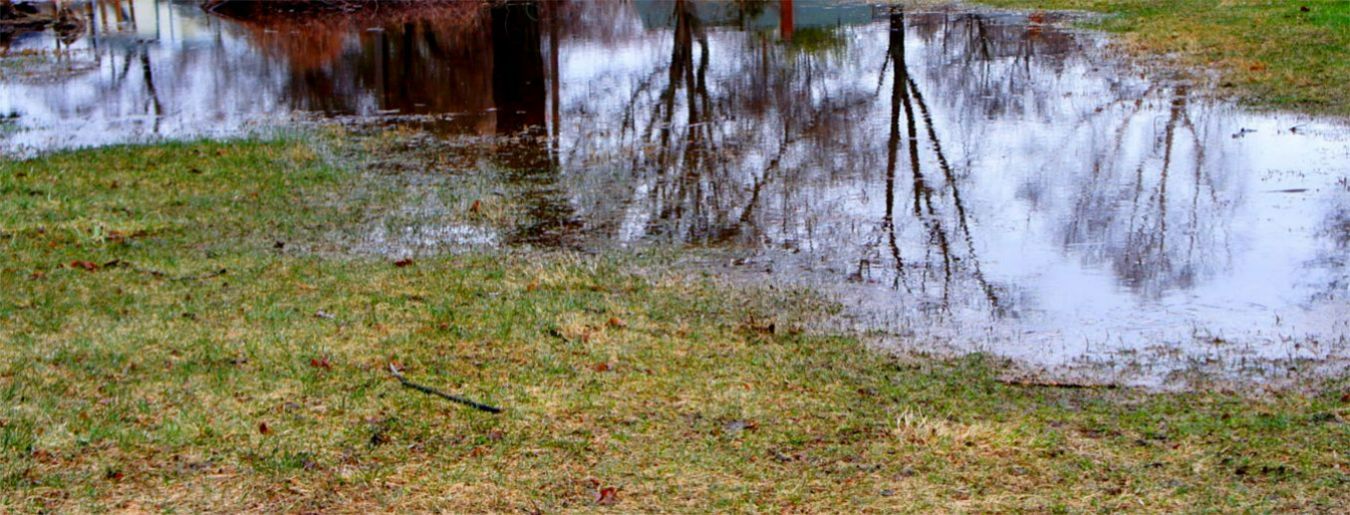Most homeowners would agree that a clover takeover in their lawn is a problem. Fortunately, there are plenty of natural ways to get rid of clover.
There are pros and cons to letting clover grow in your lawn, and not everyone shares the same feelings about this weed. Some homeowners don’t mind it growing in their lawns. The leaves from clover cover the grass, and prevent other weeds from growing. Decomposing clover can help maintain soil moisture. But, there’s always the risk that clover can overtake your lawn, and it attracts bees and rabbits.
Many homeowners wonder why clover grows in the first place. Yes, technically clover is a weed because it’s not a plant intended to grow in a lawn. It thrives in soil with low nitrogen levels, meaning it will begin to appear and grow in undernourished soil. It has the ability to produce its own nitrogen, sometimes to the detriment of your grass which needs nitrogen to thrive. To get rid of clover in your lawn and stop its spread is pretty easy and can be done without harsh chemicals. Here are ten ways to get rid of clover, ranging from homemade spray remedies to mowing your lawn.

Get Home Warranty Quotes
from Top Rated Authorized
Partners
Get a Quote
Ten DIY tips for getting rid of clover
1. Soap and vinegar
It’s important to assess how much clover you are dealing with when considering how to remove clover from your lawn. If you’re dealing with a manageable amount, then this natural clover killer will work wonders. Combine 1 tablespoon of white vinegar with some dish soap in a spray bottle. Spray the clover liberally, avoiding the grass, at least two times a day for about a week. The vinegar will dry out the clover. The soap makes sure the vinegar sticks. This is the most common homemade clover killer and works well if you are dealing with small amounts of the weed.
2. Garbage bags
This method works well to get rid of those large patches of clover weeds in your lawn. Cover the patches of clover with a plastic garbage bag or any other plastic sheet and secure it with heavy rocks or bricks, ensuring that the bag doesn’t fly up with the wind. Leave the covering over the weeds from 1 - 3 weeks until all the clover has dried out. Make sure not to cover grass or else you will dry it out too.
3. Natural weed killer
There are many eco-friendly clover weed killers that don’t have harsh chemicals. Most weed killers, also known as herbicides, may not be marketed specifically as a clover spray, but they will still do a good job of killing it. An added bonus is that these herbicides will kill other unwanted weeds as well.
-
Weed Beater Fe - Will kill weeds within hours of the first spray. Its active ingredient is derived from iron, which is good for nourishing your lawn as well.
-
Green Gobbler Vinegar Grass and Weed Killer - Made from corn grain. Corn grain helps prevent weed seeds from germinating and growing.
-
Eco Garden Pro Organic Vinegar Weed Killer - Contains vinegar, which dries out weeds.
-
A.D.I.O.S - Advanced Development in Organic Solutions - Active ingredient is sodium chloride and works best when weeds are still small.
4. Organic fertilizer
Spread organic fertilizer over your lawn. Fertilizer based on manure or worm casings are the best type of fertilizer for this. While this will not kill the existing clover, it will prevent more from growing in. Clover loves an undernourished lawn, and the fertilizer will act as a nutrient. Here are some options that work well on lawns:
-
Wiggle Worm Soil Builder - Made from pure worm casings and good during all four seasons.
-
Safer Lawn Restore - Fast acting fertilizer, nourishes your lawn within days.
-
Milogranite - Best used on already healthy lawns.
-
Espoma Organic Lawn Food - Pasteurized poultry manure is a main ingredient, great for nourishing lawns.
5. Let your lawn grow
Letting your grass grow to above three inches will prevent clover and other weeds. Some homeowners prefer the short look, but this is more stressful on grass. If you’re into letting your grass grow, you’ll less likely have a clover situation on your hands. Mowing your lawn to 3 inches or more will allow the grass to flourish and keep out the clover.
6. Lawn tools
Again, it’s important to assess how much clover you have to get rid of in your lawn before you decide on the best option for its removal. Using basic lawn tools -- like a hoe or shovel -- works well to pull the weeds out of the ground and eliminate their roots, preventing the weed from growing back. This can feel like hard work, though, if you have a big problem on your hands.
7. Water the lawn regularly
This won’t kill the clover but will prevent it from growing. If you make sure your lawn is watered regularly and kept healthy, clover will less likely find a habitable place to grow in your lawn. Clover needs a weak lawn to grow, so you can prevent the problem before it starts.
8. Corn Gluten
Corn gluten is a product easy to find in any gardening or hardware store. It works similarly to a fertilizer providing the soil with nutrients. Covering the lawn with this will not kill existing clover but prevent it from germinating and growing.
9. Seed bald spots
Over time, your lawn will have some dry patches, especially if you live in a climate that experiences spells of heat and humid summers. Seeding any bald spots in your lawn will prevent clover from germinating and maintain your lawn’s health.
10. Ammonia Sulfate
You can purchase this product at your gardening or hardware store. Cover your lawn with Ammonia Sulfate once a month until the problem is eliminated. Ammonia Sulfate is a fertilizer that will enrich your soil with nitrogen and dry out clover.

Let us find the
Best Home Warranty Provider
for your Home's Needs
Choosing the best way to get rid of clover
Choosing the best method to get rid of clover depends on how much clover you're dealing with and how big your lawn is. Manually weeding your lawn is good for eliminating the weed’s roots but can be a lot of work. Covering clover with garbage bags is great for getting rid of large amounts of clover, but not so great if your lawn has only little patches of the weed. The point is that there are plenty of ways to get rid of clover and choosing the best way really depends on what your lawn needs.



 Prev Post
Prev Post



